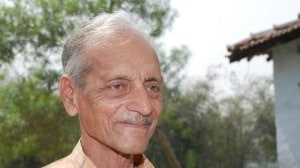Disparity in wealth of nations looms large over impending trade talks
Is it fair that every European cow laps up $2.50 a day in subsidies while half the people in the world live on less than $2 a day? This is t...

Is it fair that every European cow laps up $2.50 a day in subsidies while half the people in the world live on less than $2 a day? This is the crucial political question that trade ministers from 146 countries must answer when they meet next week at Cancun. They will assess the prospects for the WTO’s Doha round of market-opening talks, launched in the Qatari capital in November 2001, and ambitiously scheduled to be wrapped up by the end of next year. The talks got a confidence booster on Saturday when WTO envoys in Geneva agreed after endless haggling to let poorer nations override patent rules and import cheap generic drugs to fight deadly diseases such as AIDS.
But countries remain far apart on the issue that will make or break the Doha round: how far to lower barriers to business in manufactured products, services and, crucially, farm goods. With 70 per cent of the world’s poor dependent on agriculture, increasingly assertive developing nations insist they will block the Doha round unless rich states get serious about cutting farm subsidies and opening their protected markets. “Those that have more should be in a position to listen to those that have less,” says Thomas Aquino, the Philippine under secretary for international trade. And there’s the rub. Many independent experts as well as developing countries believe that global trade rules as they now stand, especially in agriculture, mean the rich get richer and the poor get poorer.
Rich countries spend some $300 billion a year on farm subsidies, about six times more than on development aid. The European Union cow is not the most pampered: the average Japanese cow receives $7.50 in subsidies, according to the World Bank. Japan also provides support to its cosseted rice farmers that comes out to seven times more than the cost of production. The United States funnels more than $3 billion a year in subsidies to its cotton farmers, three times its aid to Africa.
“Agricultural trade rules are among the most distorted in the world. They tilt precipitously in favour of rich countries. The many rules that must be rebalanced in agriculture are deeply entrenched and guarded by powerful political interests in the developed world,” the Carnegie Endowment for International Peace, a Washington-based think-tank, concluded in a recent report. The World Bank estimates that scrapping farm protection and output subsidies in rich countries would boost global agriculture production by 17 per cent, adding $60 billion a year, or 6 per cent, to the rural incomes of low and middle-income states. Relief agency Oxfam points to Mexico, next week’s host, as an example of the raw deal the poor are getting. It calculates that US corn growers receive an effective subsidy for exporting to Mexico of $105 million to $145 million a year, more than the total household income of the 250,000 corn farmers in Chiapas. “Over the past two years since Doha we’ve seen business as usual — that is, the rich countries making very few concessions on development while pursuing very aggressively their short-term interest. Cancun is the moment when that must change,” said Oxfam’s Phil Bloomer.
Any grand bargain, then, in Cancun would need to involve more radical farm reforms than proposed so far by Washington and Brussels. In return, western firms would be given easier access to sell goods and services, such as banking and telecommunications, to poor countries. But many developing countries are reluctant to lower their barriers even to each other. Latin America imposes average tariffs on manufactured goods from the continent that are seven times higher than tariffs in industrial nations, says the World Bank. “The real value-added from this round, once the EU and the US have sent the right signals, is developing-country liberalisation,” says LSE trade expert Razeen Sally. The thousands of anti-globalisation protesters expected in Cancun will disagree, but a welter of academic evidence suggests that countries open to trade and investment grow faster than those that are not. North Korea was once richer than South Korea; after 50 years of hermit economics, it is now 16 times poorer.
Under the WTO’s multilateral umbrella where every country has one vote, they have the chance to work for a deal that the World Bank estimates could yield gains of $2.8 trillion by 2015, of which $1.5 trillion would go to developing countries. (Reuters)





- 01
- 02
- 03
- 04
- 05


























